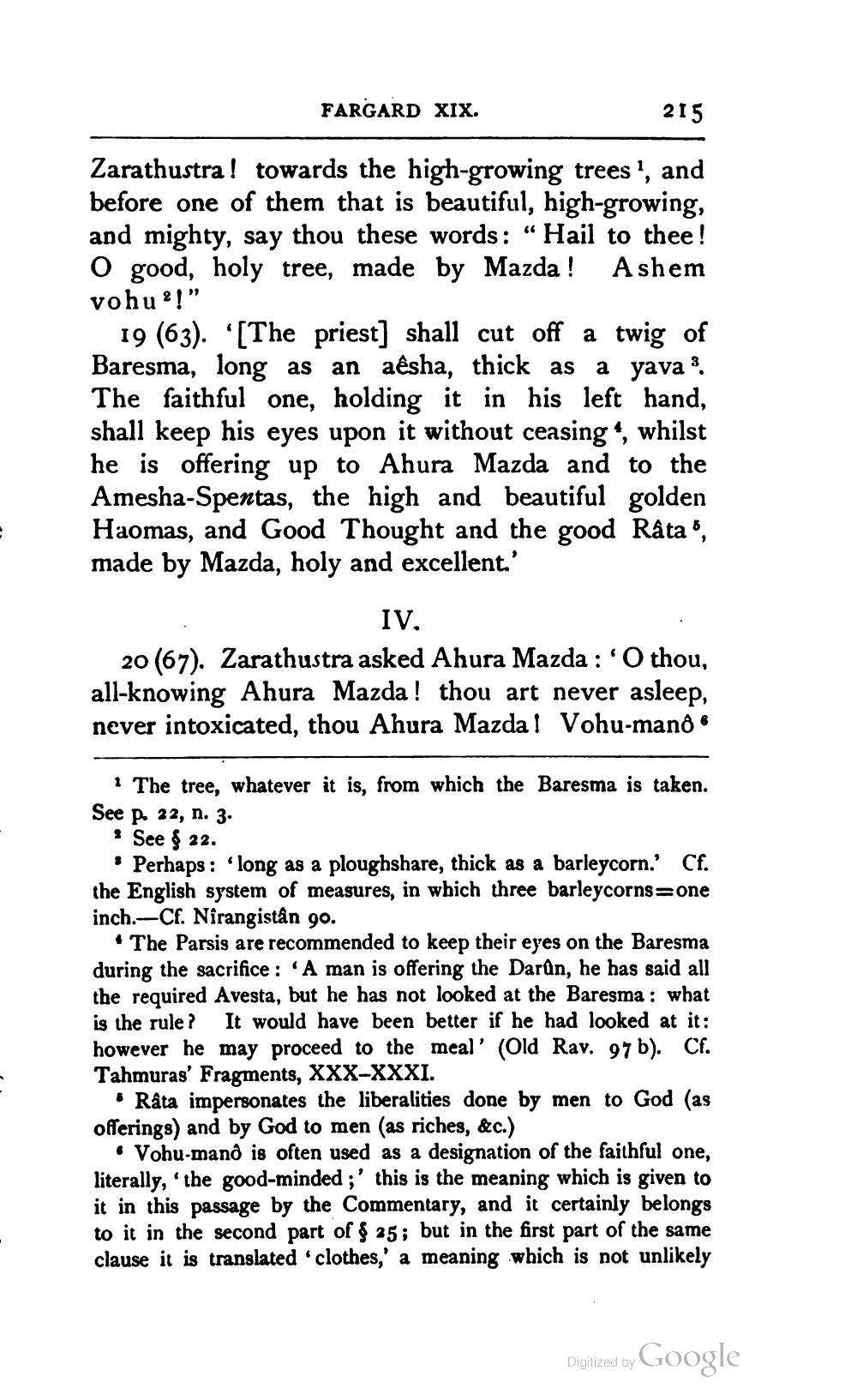________________
215
Zarathustra! towards the high-growing trees1, and before one of them that is beautiful, high-growing, and mighty, say thou these words: "Hail to thee! O good, holy tree, made by Mazda! A shem
vohu 2!"
19 (63). [The priest] shall cut off a twig of Baresma, long as an aêsha, thick as a yava3. The faithful one, holding it in his left hand, shall keep his eyes upon it without ceasing, whilst he is offering up to Ahura Mazda and to the Amesha-Spentas, the high and beautiful golden Haomas, and Good Thought and the good Râta", made by Mazda, holy and excellent.'
FARGARD XIX.
IV.
20 (67). Zarathustra asked Ahura Mazda: 'O thou, all-knowing Ahura Mazda! thou art never asleep, never intoxicated, thou Ahura Mazda! Vohu-manô
1 The tree, whatever it is, from which the Baresma is taken. See p. 22, n. 3.
? See § 22.
Perhaps: 'long as a ploughshare, thick as a barleycorn.' Cf. the English system of measures, in which three barleycorns=one inch. Cf. Nirangistân 90.
The Parsis are recommended to keep their eyes on the Baresma during the sacrifice: 'A man is offering the Darûn, he has said all the required Avesta, but he has not looked at the Baresma: what is the rule? It would have been better if he had looked at it: however he may proceed to the meal' (Old Rav. 97 b). Cf. Tahmuras' Fragments, XXX-XXXI.
Râta impersonates the liberalities done by men to God (as offerings) and by God to men (as riches, &c.)
• Vohu-manô is often used as a designation of the faithful one, literally, the good-minded;' this is the meaning which is given to it in this passage by the Commentary, and it certainly belongs to it in the second part of § 25; but in the first part of the same clause it is translated clothes,' a meaning which is not unlikely
Digitized by
Google




